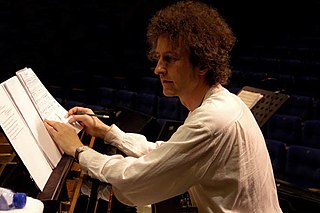René Compère (December 28, 1906 in Brussels – April 24, 1969 in Brussels) was a Belgian jazz trumpeter.

Brussels, officially the Brussels-Capital Region, is a region of Belgium comprising 19 municipalities, including the City of Brussels, which is the capital of Belgium. The Brussels-Capital Region is located in the central portion of the country and is a part of both the French Community of Belgium and the Flemish Community, but is separate from the Flemish Region and the Walloon Region. Brussels is the most densely populated and the richest region in Belgium in terms of GDP per capita. It covers 161 km2 (62 sq mi), a relatively small area compared to the two other regions, and has a population of 1.2 million. The metropolitan area of Brussels counts over 2.1 million people, which makes it the largest in Belgium. It is also part of a large conurbation extending towards Ghent, Antwerp, Leuven and Walloon Brabant, home to over 5 million people.
Jazz is a music genre that originated in the African-American communities of New Orleans, United States. It originated in the late 19th and early 20th centuries, and developed from roots in blues and ragtime. Jazz is seen by many as "America's classical music". Since the 1920s Jazz Age, jazz has become recognized as a major form of musical expression. It then emerged in the form of independent traditional and popular musical styles, all linked by the common bonds of African-American and European-American musical parentage with a performance orientation. Jazz is characterized by swing and blue notes, call and response vocals, polyrhythms and improvisation. Jazz has roots in West African cultural and musical expression, and in African-American music traditions including blues and ragtime, as well as European military band music. Intellectuals around the world have hailed jazz as "one of America's original art forms".
Compère played with Billy Smith's Brussels-based band in 1923 before founding his own ensemble, the New Royal Dance Orchestra. As a member of Smith's group, he met Charles Remue, with whom he worked for several years; Jean Omer also played in Compère's orchestra. He recorded with Fernand Coppieters in 1929, then joined Josephine Baker's backing band for several European tours in the first half of the 1930s. He was hired to play aboard the ship SS Normandie for transatlantic voyages. In 1937 he played at the Paris Exposition with Django Reinhardt, then worked in France with Joe Bouillon and in Belgium with Joe Heyne. During World War II he recorded with Eddie Tower .
Charles Remue was a Belgian clarinetist, alto saxophone player and bandleader of early jazz, who, while leading a band called Chas. Remue & His New Stompers, recorded what are widely considered to be the first jazz discs by a Belgian band.
Jean Omer was a Belgian jazz reedist and bandleader.
Fernand Coppieters was a Belgian jazz and light music keyboardist. Primarily known as a pianist and organist, he also occasionally played accordion, saxophone, and violin. He was the father of Francis Coppieters.



